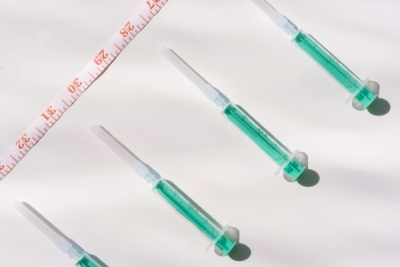Dry January: Learn How to Reduce Alcohol Consumption
Dry January: Learn How to Reduce Alcohol Consumption
A campaign launched in the United Kingdom, Dry January, which encourages a month without alcohol, can motivate the adoption of healthier habits.
Year-end celebrations are often accompanied by champagne and followed by hangovers in the days after. In addition to excessive alcohol, it’s also common to overindulge in fatty and sugary foods during this time, which increases health risks and causes many people to start the year not feeling their best. Therefore, January can be a great time to set new goals and objectives for a healthier lifestyle, which may include temporarily stopping alcohol consumption.
The challenge of Dry January is simple: stay sober for all 31 days of the month. Although it is a short period, this change can bring health benefits, especially after the excesses of the holidays.
Main Benefits
Taking a break from alcohol can bring numerous physical and mental benefits, such as better sleep quality, clearer skin, and more energy throughout the day.
These benefits will depend on how much and how often a person drinks. If a person regularly drinks large amounts, a sudden change may cause irritation before they start feeling better. For those who drink less, the benefit is more immediate, with increased energy and improved mood after a few days of sobriety.
Additionally, the break can help with weight loss, reduce blood pressure, and improve liver function.
Challenges
It is increasingly common for people to decide to take periodic breaks from alcohol consumption. These pauses can be important for individuals to assess the role alcohol plays in their lives and make changes if they find their relationship with the substance is unhealthy. However, the break is useless if it is followed by excessive drinking afterward. Some people think that because they went a month without drinking, they can drink as much as they want afterward. This will undo the benefits they achieved. Therefore, maintaining healthy behavior over time is more difficult than the short break itself. For this, more than a month without drinking, discipline, commitment, and willpower are required.
Changing habits abruptly, especially if alcohol consumption is part of one’s routine, is not easy. To support this process, CISA highlights five tips that can make a difference:
- If you’ve decided it’s time to reduce or stop drinking, don’t delay. Set a date and start.
- Share your intention to reduce or stop drinking. This can motivate your family and friends to support you.
- Stay away from places that remind you of alcohol or trigger cravings to drink, such as bars, liquor stores, or the alcohol section of a supermarket. It’s also useful to avoid having alcohol at home.
- Fill your free time with hobbies and activities that don’t involve alcohol.
- Remember that adopting other healthy habits will also help in this process: try to eat well, get a good night’s sleep, exercise, and drink water.
The difficulty in reducing or stopping alcohol consumption will depend on an individual’s personal characteristics, how much they typically drink, and whether they already experience emotional, physical, or interpersonal complications from alcohol use. If difficulties arise during this process, seeking help from a trusted healthcare professional for a detailed assessment is recommended.





